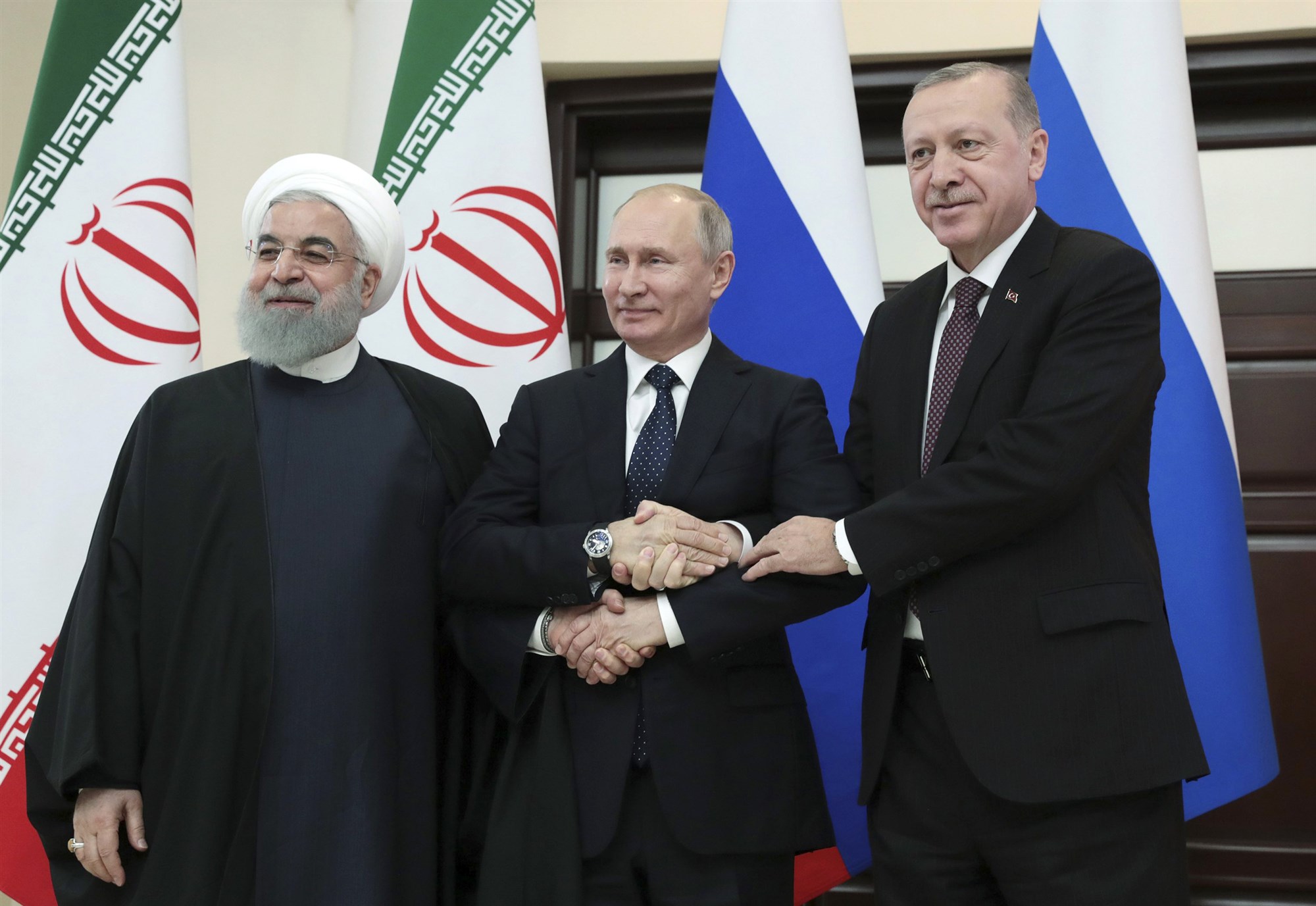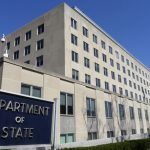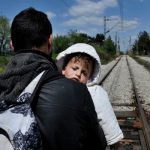By Ilhan Tanir
After three important summits this week, there is no good news for Turkish President Recep Tayyip Erdoğan.
The trilateral summit between Astana guarantor countries in the Black Sea resort of Sochi was one of the three meetings, besides a NATO meeting in Munich and a U.S.-sponsored Middle East conference of an anti-Iran coalition, which hosted foreign ministers and senior officials from 60 nations in the Polish capital on Thursday.
As Turkey sat at the table in Sochi, it also had a domestic political concern in mind; the March 31 local elections. Erdoğan’s pledged cross-border operation into northern Syria on the eve of the polls has not been backed by any European countries, but he at least wanted a green light from Russia and Iran. That was not forthcoming
Just before the summit, Russian Foreign Ministry spokeswoman Maria Zakharova said the east of Euphrates should be under Syrian government control. It was the first shock for Ankara.
During a press conference given by the leaders of Russia, Iran and Turkey, it became clear that Erdoğan’s ‘safe zone’ plans for the east of Euphrates were not welcome.
Since U.S. President Donald Trump’s surprise December announcement that he was withdrawing U.S. troops from northeastern Syria, Turkey has been negotiating with Washington to establish a 20-mile (32-km) safe zone in the area. The backing of U.S. forces in Syria has helped Syrian Kurdish People’s Protection Units (YPG) all but defeat Islamic State there. But Turkey see the YPG as an extension of the Kurdistan Workers’ Party (PKK) that has been fighting for self-rule in Turkey’s mainly Kurdish southeast since 1984.
After Erdoğan defended the idea of a safe zone in northern Syria and promised to bring back Syrian refugees, Iran’s President Hassan Rouhani showed his disapproval by saying the Syrian government must assert full control over the country before rebuilding cities and establishing safe zones. Then he set a second condition – Idlib should be cleared of what he called terrorists – groups that Turkey supports – and given back to the Syrian government.
The only times during the press conference that Erdoğan appeared comfortable was when he was criticising the United States. He said President Donald Trump had made the decision to withdraw from Syria, but his aides had halted it. Erdoğan unhappily admitted that it was not certain that U.S. troops would pull out from Syria.
Erdoğan still has no agreement on a safe zone in Syria with the United States or Washington’s Western allies. Although Trump was able to make promises on the phone to Erdoğan, the withdrawal he announced on Twitter will not be accomplished easily.
In Sochi, Erdoğan saw that his safe zone idea, opposed by his Western allies, was also rejected by Turkey’s eastern allies, Russia and Iran. The likelihood of Erdoğan’s cross-border operation in Syria happening before the local elections, appears more remote than ever.
Iran, Russia and Turkey agreed at the Sochi summit “the withdrawal of U.S. forces from Syria will strengthen stability and security”, Turkey’s state-run Anadolu news agency quoted their joint statement as saying.
“Parties agreed to coordinate their activities to ensure security, safety and stability in the northeast of Syria” and expressed their determination to stand against separatist agendas in Syria, the statement said.
None of these statements is good news for Erdoğan.
Rouhani implied a military operation to establish a safe zone was not possible without Iran’s consent and his two conditions must be met first. So an operation in the northeast is not possible until Iran and the Syrian government give their permission.
Putin handled the rest. The Russian leader made a reference once again to the 1998 Adana Agreement, which only allows joint action by Syria and Turkey to fight terrorism, without explicitly mentioning its name.
If Erdoğan wants to launch a military operation in northeast Syria, it can only be achieved with the agreement with the Syrian government, Putin said.
The fact is that all the roads to the east of the Euphrates were closed in Sochi on Thursday.

It is time to ask the question who will Erdoğan paint as an enemy before the March 31 local elections, apart from fruit and vegetable sellers.
Consumer price inflation has reached 20.4 percent as higher food prices offset the effects of government price cuts and lower taxes. Erdoğan blamed producers and retailers for the price rises.
While the president drew a blank in Sochi, he did not take part in anti-Iran coalition meetings in Warsaw organised by the Trump administration, which is setting up a new coalition that includes Israel, Saudi Arabia, Egypt and the populist leaders of eastern Europe.
Erdoğan seems to fit the profile, but he excluded himself as he cannot be seen with Israel, Saudi Arabia and Egypt in an anti-Iran meeting and publicly opposes the pressuring Iran.
U.S. Secretary of State Mike Pompeo refers to the Turkish administration indirectly as the Muslim Brotherhood, and when he was asked, he said the Muslim Brotherhood would be dealt within the scope of the fight against terrorism.
This standoff in relations also shows the distance between Pompeo and the Erdoğan administration. Another foreign policy big gun, Trump’s National Security Adviser John Bolton, was snubbed by the Turkish president when he visited Ankara last month.
At the third summit of the week, the U.S. Department of Defense said the possibility of sending an international force to replace U.S. forces withdrawing from Syria would be discussed at the NATO meeting. This is not music to Erdoğan’s ear.
Another blow at the meeting came when the U.S. ambassador to NATO, Kay Hutchison, said firmly that if Turkey went ahead and took delivery of Russian S-400 air defence missiles, it would be the end of the deal for Ankara to purchase U.S.-made Patriot missiles and F-35 advanced fighter jets.
The U.S. government’s main concern, shared by other NATO members, is that the Turkish military’s simultaneous deployment of the S-400s and the F-35s could allow Russia to glean sensitive details about fighter’s defences.
Yet again, Erdoğan appears to have emerged empty-handed
Source: Ahval News



